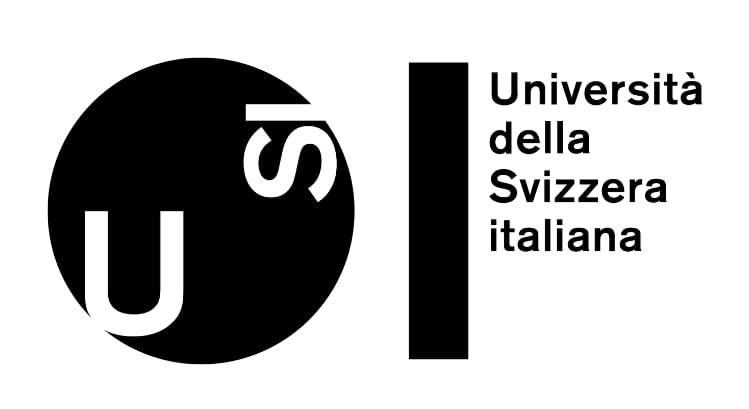Study Psychology: The Ultimate Student Guide (2024)
If you’re wondering how to get a psychology degree, or you’re wondering “What can I do with a psychology degree?”, this guide can help.
- Subject Guides
- Health Sciences
- Social Sciences

SCHOLARSHIPS | STUDENT RESOURCES | MORE SUBJECT GUIDES
Have you found yourself wondering what’s the driving force behind why we act the way we do? Are you inspired and fascinated by introspective studies? Are you moved by the complexities of the human psyche, and are interested in making a long-lasting impact on others? Then the captivating field of psychology might be a perfect match for you!
Psychology has been with us since the dawn of humanity. It is a central part of the human experience - it helps us understand each other, and is crucial for developing humane and effective social systems, be it in welfare, politics, education, criminal justice or something else. It helps reduce prejudice and discrimination, and increase empathy and understanding in society.
If you’re wondering how to get a psychology degree, or you’ve already completed your degree and are now asking yourself “What can I do with a psychology degree?”, this guide can help you.
In this guide:
- What is a psychology degree?
- Difference between psychology and cognitive science
- Areas of psychology you can study
- How long does a psychology degree take?
- Why study psychology abroad?
- Careers in psychology
- Psychology salaries
- Tips for choosing a psychology degree
- Advice from psychology graduates
- What to ask universities about their psychology programs
- What to look for in a university when looking for psychology programs
- Psychology accreditations for universities
- Popular universities for studying psychology
Find a psychology degree in your dream destination
Find & compare psychology degrees from universities around the world!
What is a psychology degree?

Psychology is the study of human behavior, cognition, and emotion. It’s a broad field that includes many different subdisciplines, such as clinical psychology, developmental psychology, social psychology, and cognitive psychology.
A psychology degree program typically includes coursework in research methods, statistics, and the history and systems of psychology. Students also take courses in specific areas of psychology, such as abnormal psychology, personality, and cognitive psychology.
In addition to coursework, many psychology programs require students to complete supervised practical experience, such as internships or fieldwork. This can include working in research labs, hospitals, schools, or other settings where psychological services are provided.
What's the difference between psychology and cognitive science?
Psychology and cognitive science are both fields that study the mind and behavior of people, but they approach the topic from slightly different perspectives.
Psychology studies human behavior, thought, and experience at the individual level. Cognitive science, on the other hand, is an interdisciplinary field that combines elements of psychology, computer science, philosophy, neuroscience, and linguistics to study the mind and intelligence. The main focus of cognitive science is understanding how the mind processes information and how it produces intelligent behavior. It is more concerned with understanding the information processing mechanisms of the mind and how they work.
So, while psychology focuses on the study of human behavior and mental processes, cognitive science takes a more computational approach, studying how the mind processes information and simulating this process using computational models.
Both fields overlap in many areas, but cognitive science tends to be more theoretical and experimental, while psychology tends to be more applied, focusing on the practical implications of research findings.
Which areas of psychology can you study?
While most psychology programs tend to be broader in scope, there are many subfields of psychology that you can study and specialize in.
If you would like a degree that will allow you to make a direct impact on the wellbeing of future generations:
Learn about how children grow and develop under the influence of their environment, and help them overcome learning difficulties, behavioral problems and other issues.
Study how and why people change over the course of their lives, from infancy to old age.
Discover how students learn, how to design effective educational programs, how to measure and assess learning outcomes, and how to create a positive classroom environment.
If conducting psychological studies and research are more up your alley:
Engage in qualitative and quantitative scientific research in specific subfields of psychology.
Research, diagnose, prevent and treat various mental health and behavioral disorders.
Use a variety of techniques, such as neuropsychological testing, brain imaging, and electrophysiology to assess and diagnose neurological and neuropsychiatric disorders.
If you’re interested in applying psychological principles in other fields:
Use psychology in areas like criminal investigation, trial consultation, and offender rehabilitation.
Work with athletes, coaches, and teams to improve performance, motivation, and well-being through the highs and lows of their career.
Apply psychological principles in the workplace, help organizations select and train employees, design jobs and work environments, and improve performance and productivity.
How long does it take to get a psychology degree?

How long it will take you to get a psychology degree can vary depending on the level of degree you are pursuing, your study abroad country, and the specific program you are enrolled in.
Typically, a bachelor's degree in psychology takes three or four years to complete on a full-time basis. Some universities in the US offer a five-year program for a B.A. and M.A. combined.
On the other hand, most Master's degree programs in psychology take one or two years as a full-time student, although some programs may take longer.
A Doctoral degree in psychology (Ph.D. or Psy.D.) typically takes between 4 to 7 years to complete, depending on the program you’re attending.
Keep in mind that some students take longer to complete their degree because they attend part-time or take a break from their studies.
Why study psychology abroad?
While studying abroad is often more expensive than getting a degree in your home country, dozens of thousands of students do it anyway. Why? Here are some reasons why a psychology degree abroad might just be worth it for you:
1. Get a greater opportunity to research and specialize
Some universities or programs abroad may have specific focus or expertise in an area of psychology you’re interested in. By connecting with psychologists with narrower specializations, you can share and grow the field together, and potentially bring that valuable information and experience to make a difference back in your home country.
2. Gain professional experience and broaden your horizons
Studying psychology abroad provides you with the opportunity to observe and work with mental health professionals from across the globe. This can help you broaden your perspective and understanding of the field, and expose you to different theories and best practices.
3. Deepen your understanding of cultural impact on human behavior
Studying psychology abroad allows you to experience different cultures and gain a deeper understanding of the ways in which culture shapes individuals' thoughts, behaviors, and emotions. A country’s culture and social norms influence the way people see themselves, their role in society, and how that makes them feel. These are important factors that psychologists consider when analyzing human behavior.
4. Create a network of colleagues from across the globe
Getting a psychology degree abroad provides you an opportunity to meet and form connections with people from around the world who may be able to provide valuable networking opportunities and professional contacts within the psychology field.
5. Explore the versatility of psychology
Studying abroad can be a life-changing experience that allows you to become more independent, open-minded, and adaptable. Similarly, studying psychology abroad might help you discover more career opportunities you’d be interested in. Maybe it’s not too common for psychology graduates to get into the business world post-graduation in your home country, but your study abroad destination is filled with psychology alumni in that industry sector. It’s a truly eye-opening experience.
6. Develop your language skills
Studying psychology abroad also helps you improve your language skills, which is absolutely beneficial for your future career. Whether you’re planning on moving abroad permanently later down the line, or you plan on coming back to your home country after graduating, being fluent in another language is hugely beneficial in our modern globalized world.
Careers in psychology

Some students might be wondering, what can I do with a business degree? Here are some potential job titles for business degree graduates:
- Clinical psychologist
- Mental health counselor
- Human resource manager
- Market researcher
- Social worker
- School psychologist/counselor
- Marketing manager
- Career counselor
- Special education (SPED) teacher
- Advertisement specialist
- Public relations (PR) manager
- Sports coach
- Journalist
- Correctional treatment specialist
- Forensic psychologist
- UX designer
Psychology degrees open doors to many industries and roles. Depending on your personal preferences and career goals, you might end up working in a research lab, or applying your knowledge and skills in a more hands-on environment. Keep in mind, however, that certain careers, like social work and special education teaching, require additional qualifications (degrees, certificates, etc.).
What are salaries for graduates of a psychology degree?
Salary ranges for graduates with a psychology degree vary widely based on different factors: the job position, level of education, location, and years of experience.
On average, the median annual salary for psychologists was $81,000 as of 2021, according to the U.S. Bureau of Labor Statistics report. However, psychology is incredibly versatile and its graduates can end up working in a variety roles, whose salaries range from midrange wage to six figures and above.
Here’s a more detailed breakdown of average psychology graduate salaries based on the industry you choose to work in, the country you live in and the highest education level.
| Job | United States | United Kingdom |
| Human resource manager 👩💼 | $71,612/year | £36,730/year |
| User experience designer 🖥️ | $78,332/year | £35,528/year |
| Occupational therapist 🧠 | $69,228/year | £28,770/year |
Tips for choosing a psychology degree

You might be drawn to psychology if you’re a naturally empathetic and introspective person. It studies how we learn, what external and internal factors shape our behavior, what motivates us to act the way we do, and how we can use that knowledge to help others. If you have a passion for these areas and enjoy learning about the human mind, psychology may be a good field for you.
Here are some questions you should consider:
- How much time and money can I devote to a program?
- What am I trying to achieve with this degree?
- Do I need to travel or relocate to study a program I’m interested in?
- What are the admission requirements for the psychology program I want to apply for?
- Do I want to work more hands-on or do I want to be involved in psychology research?
- What can I do with different psychology qualifications post-graduation?
- Do I want to study abroad as a part of my degree program?
- Should I major in psychology, or should I study it as a complementary program to a different degree? I.e. getting a Bachelor’s in marketing and a Master’s in psychology.
- Will I need an MBA or further education to achieve my career goals, or is a Bachelor’s degree with additional certifications enough?
What are you planning to achieve?
Before settling on a particular program or specialization, take a bit of time to consider what your goals are and what you’re trying to achieve with this degree. Are you looking to follow a particular career path, for example in human resources or recruiting? Or are you curious about human behavior and want to study psychology just because it fascinates you? Is it something in between?
None of these answers is incorrect - they’re all perfectly valid. But depending on what you’re trying to achieve, you might have to adjust your plan.
If you don’t have a specific post-graduation goal in mind, consider testing the waters with individual courses in psychology before diving into a full-time program.
On the other hand, if you have a clear idea of what you’d like to do after getting a degree, make sure that the program you’re looking into has the appropriate courses to help further your goals.
Program courses differ between countries
When you’re choosing which program to apply for, it’s very important to remember that your psychology study and practice will be bound to a country or territory you’re getting a degree in.
Every university, and especially every country, has a different way of dealing with this discipline. There are some topics that will be broadly discussed within every program, but generally, different universities and countries will prioritize different fields of study. Similarly, each country has its own distinctive path to practicing psychology after graduation.
Make sure to research how psychology is studied and practiced at your target university or study destination.
General psychology and psychology specializations
Psychology is an incredibly versatile field, which can be applied in pretty much every context or industry. Psychology graduates will fit any role that involves understanding and communicating with people.
Most psychology programs help you develop a holistic framework of thinking and approaching human interaction, rather than provide you the tools for a single specialization. This means that studying psychology also involves delving into other areas that impact human psyche and behavior. These include, but are not limited to: cultural studies, history, religion, gender studies, philosophy, sociology, anthropology, biology and much more.
On the other hand, if you’re really passionate about a single subfield of psychology, or if you already know what career you’d like to pursue after graduating, it could be worthwhile to look into specializations, either at a degree level or course level within your program syllabus.
Helpful advice from psychology degree graduates
We talked with some psychology degree alumni to see what they thought about their program and if they have any advice to share with you.

"Don’t be afraid of the field. Psychology students do that for finding answers to their dilemmas or coping ways against their traumas. It takes a high emotional toll. If you choose that path, it means you’re a highly sensitive and curious person. What you can take for sure is that this degree will give a big hand in helping you turn into a better version of yourself. Don’t be afraid of your sensitivity, make it turn into your main strength"
- Stephano, BS in Psychology and Social Processes from Sapienza Università di Roma

"Try to look for study abroad programs and internships, and focus on universities' exchange courses during the study"
- Liza, Bachelor's degree in Psychology, Education and Law from Stockholm University
What questions should you ask a university to find the right psychology program?
Here were the most common and helpful questions psychology alumni think you should be asking universities before you apply:
- Does the program include a semester abroad?
- Does your target university have partnerships (for internships, research, study abroad…) with other universities or companies you’re interested in?
- Do the professors have real-life experience working as psychology practitioners?
- Does the school provide career counseling or job placement for psychology graduates? What additional support and services does the school provide?
- Which schools have the curricula and specializations that you're most interested in?
- What is the study format for potential psychology programs?
- Is it possible to take psychology as a complementary degree at a Master’s level without having a Bachelor’s in psychology?
- Are there any hands-on and internship opportunities included in the curriculum?
- Is the psychology program flexible with extracurricular activities, internships, and jobs?
What should I look for in a university for studying psychology?
Study abroad and exchange opportunities
Psychology is tied to the country you’re studying in. The culture, language, religion and ethics can vastly differ between different countries. That’s why studying psychology abroad can expose you to different cultural perspectives and approaches to mental health and well-being. This can broaden your understanding of the field and provide you with new ideas and perspectives that you may not have encountered in your home country.
Multi-disciplinary approach
Ideally, your psychology program will include courses from other subjects too. Opening yourself up to studies in other social sciences, philosophy, history, and much more, will enhance your cultural competence and help you understand the social and cultural contexts of human behavior. What’s more, cross-cultural research can help identify cultural variations in psychological processes, which can inform interventions and treatments for people from different cultural backgrounds.
Modern and diverse curriculum
Examine the psychology curriculum to see if it covers the topics and areas that interest you, and whether there are opportunities to specialize or take electives in your areas of interest. This is especially important if you’re planning on getting a Master’s or a PhD in psychology or a psychology-related field. Also, make sure to check if the program offers courses in research methods and statistics, which are essential skills for psychologists.
Types of accreditation for psychology degrees
Accreditation ensures that the program meets certain quality standards and that your degree will be recognized by employers and graduate schools. When researching universities to apply to, make sure the university's psychology program is accredited by the appropriate regional, national or international accrediting agency.
You can easily check if a university is accredited by searching the university or program name on one of the following websites:
- CHEA.org and DAPIP for programs and universities in the United States
- European University Association (EUA) for universities in Europe
- TEQSA and APAC for universities and programs in Australia
- Any region or country-specific website of your target study destination
Here are a few examples of accreditation bodies for psychology programs:

EFPA CERTIFICATION
European Federation of Psychologists' Associations (EFPA) is a federation of 38 national psychology associations from across Europe. It offers a European Certificate in Psychology (EuroPsy) to psychologists who meet certain education and training standards, which is designed to promote mobility and recognition of professional qualifications across Europe.

APAC CERTIFICATION
Australian Psychology Accreditation Council (APAC) is the accreditation body for psychology programs in Australia. It accredits undergraduate and postgraduate programs in psychology, and its accreditation standards are based on the National Psychology Accreditation Standards.

ApA CERTIFICATION
American Psychological Association (APA) accreditation ensures that a psychology program meets high standards in terms of curriculum, faculty qualifications, student outcomes, and other factors for US-based programs. Not all psychology programs are APA accredited, but earning a degree from an APA-accredited program can be an advantage for certain types of jobs or graduate programs in the United States.
Make sure to research what accreditation bodies are responsible for overseeing universities and programs in your country of choice.
It's important to note that international accreditation is not always necessary or recognized in all countries. However, if you plan to work or study in a particular country, it's important to research the accreditation requirements and standards for psychology degrees in that country to ensure that your degree will be recognized and valued by employers and graduate schools alike.
Popular universities to study psychology

Università della Svizzera italiana (USI)
Location: Lugano, Switzerland
Courses available in: Health Communication, Cognitive Psychology, Neuroscience, Management, Strategy, Organizational Psychology

BANGOR UNIVERSITY
Location: Bangor Gwynedd, United Kingdom
Courses available in: Psychology, Clinical Psychology, Sports and Exercise Psychology, Childhood and Youth Studies and Psychology, Linguistics and Psychology

John Cabot university
Location: Rome, Italy
Courses available in: Psychobiology, Developmental Psychology, Social Psychology, Clinical Psychology, Industrial Organizational Psychology, Educational Psychology, Research Methods and Statistics
Ready to study psychology abroad?
Find & compare psychology degrees from universities around the world.

Keystone Team
Author
The Keystone Team is comprised of experienced educators and advisors dedicated to providing valuable resources and advice to students all over the world.
Read related articles

Top 10 Popular Online Master's Degrees in Public Health

How to Get into Medical School in Australia
